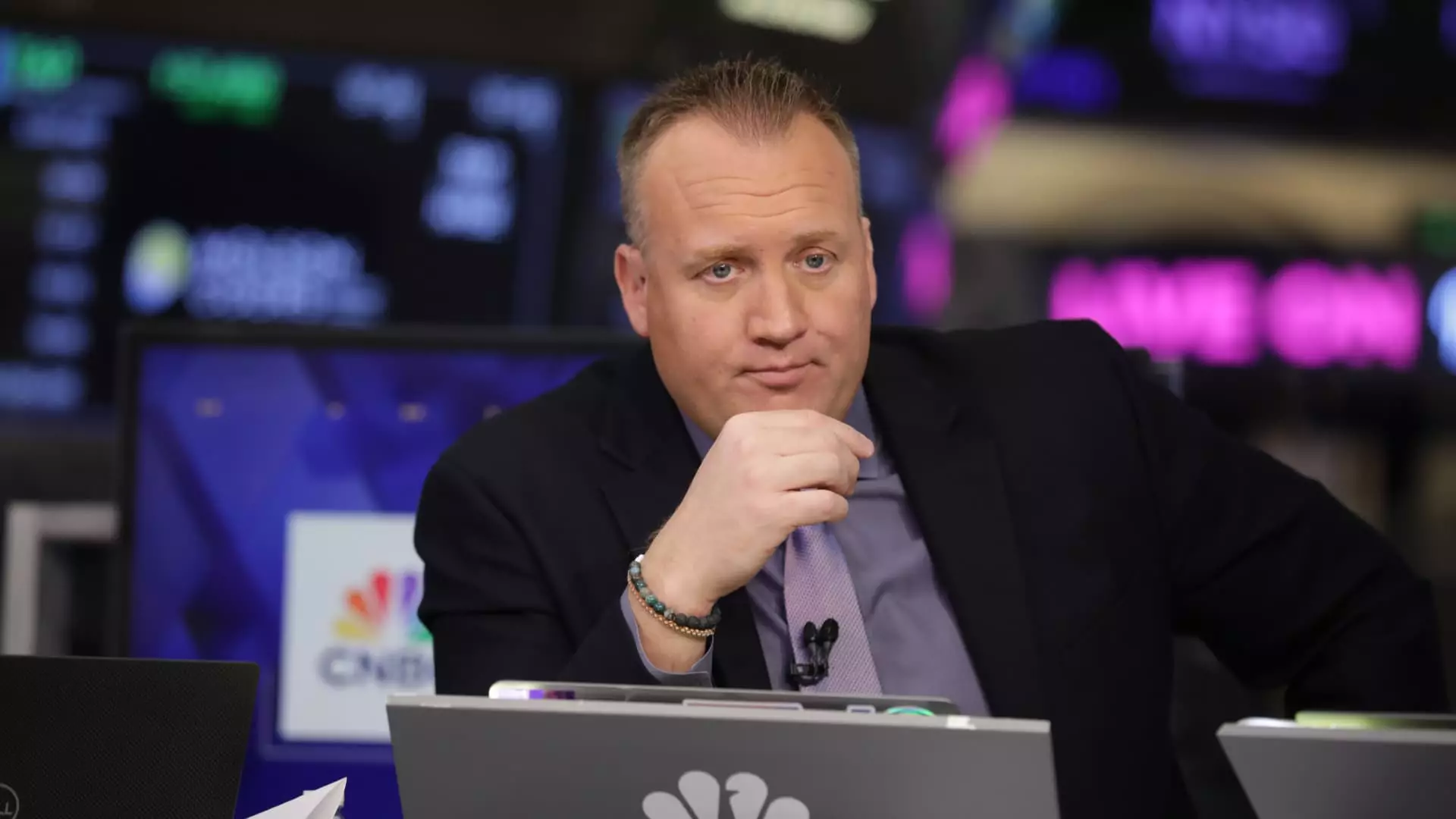As the landscape of digital search continues to evolve, many investors are taking a hard look at Google’s future. Recent comments from Apple’s services chief about the impending obsolescence of traditional search engines in favor of AI systems have sent shockwaves through the tech sector, and Ritholtz Wealth Management’s CEO, John Brown, isn’t shy about his skepticism. The sentiment is palpable—young users are increasingly gravitating towards advanced AI platforms like ChatGPT, which have a sleek user interface and immediate relevance. Google’s historical monopolistic edge appears to be eroding, and for the first time, it confronts substantial competition in its core domain. With Gen Z opting for AI-fueled search experiences, Google’s vast resources may no longer guarantee unwavering dominance. Brown’s bearish outlook reflects a broader concern: is Google losing touch with the very users who propelled it to the forefront of technological evolution?
CrowdStrike: An Investment Beacon in a Turbulent Market
Conversely, the scenario for CrowdStrike is one of optimism and promise. Identified by Brown as one of the top stocks to watch, CrowdStrike’s resurgence is driven by significant growth metrics, particularly a commendable 23% uptick in Annual Recurring Revenue (ARR). This figure is more than a number; it signifies confidence in the cybersecurity sector amid increasing global digital threats. As organizations prioritize security measures, CrowdStrike has positioned itself as a linchpin in the conversation around corporate safety in cyberspace. One can argue that this is emblematic of a deeper trend—investors are beginning to recognize that cybersecurity is not merely an expense, but a non-negotiable investment into the future.
Uber’s Uncertain On-Ramp: Price, Convenience, and a Changing Landscape
Another intriguing commentary was centered on Uber as it attempts to reshape its identity in the realm of autonomous vehicles. With rising operational costs across the board, the market appears to be catching on to the realities of consumer behavior. Brown suggests that users will ultimately lean toward a single, streamlined app that can encapsulate their mobility needs. This approach represents a significant pivot in how ride-sharing and transportation services operate. Consumers prioritize not only price and convenience but also speed—an essential triad that Uber must dominate to maintain any competitive advantage. However, doubts linger. Can Uber’s ambitious driverless initiatives overcome the hurdles of technology and public perception fast enough to adapt to a rapidly shifting market?
The Dual Challenges of Reddit and Its Perception in the Market
Brown’s decision to divest from Reddit underscores a fascinating paradox in tech investing: the platform’s high placement in Google search results has become a double-edged sword. While it appears to fortify Reddit’s market position, it also reflects broader uncertainties about its sustainability and monetization strategies. The cognitive dissonance Brown references points to a fundamental misalignment in consumer expectations versus Reddit’s ability to capitalize on its popular platform. Investors must grapple with whether the media hype around Reddit translates into long-term viability and revenue streams.
Berkshire Hathaway: A Legacy in Transition
An impassioned endorsement for Berkshire Hathaway’s leadership transition highlights a contrast to the volatility seen elsewhere in the market. Warren Buffett’s meticulous planning for succession is not just a corporate formality—it’s a blueprint for stability that reaffirms the value of strategic foresight in business. Brown’s confidence in this transition alludes to a central tenet of effective management: preparation. The business world should take note; this meticulous strategy may serve as a benchmark for companies grappling with leadership instability. In a landscape where executive turnover can jeopardize shareholder trust, Berkshire’s model offers a fascinating study in contrast, advocating for thoughtful transitions rather than abrupt changes.
Shake Shack: The Sweet Taste of Expansion
In the culinary sector, Shake Shack is positioning itself for growth, showcasing a strategic expansion plan that excites investors, including Brown. His bullish stance suggests an underlying faith in the brand’s ability to draw customers beyond mere trends, appealing instead to a more health-conscious yet indulgent consumer demographic. As trends in fast food shift towards quality and experience, Shake Shack finds itself in a unique position to capitalize on this evolving consumer palate. This underscores a significant shift where traditional fast food is juxtaposed against premium offerings, and it will be fascinating to watch how this differentiation plays out in the coming years.
In essence, the stock market is a complex tapestry of opportunities and threats, and investors must navigate it with both caution and conviction. Each of these companies presents a unique narrative that reflects larger societal and technological trends, compelling onlookers to reassess what they value in their investments.


Leave a Reply